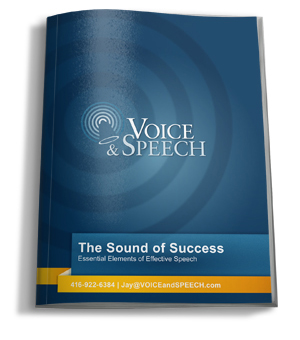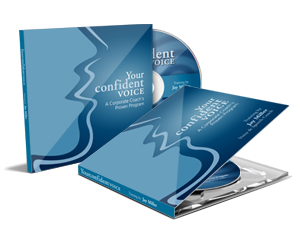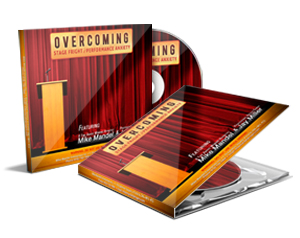Managing Nervousness
It would be difficult to find an activity more fraught with fear and anxiety than public speaking. Invent a pill for stage fright and you’ll be an instant billionaire. Until then, it may be reassuring to know you’re not stuck with an acute condition. There are natural remedies to keep the symptoms of nervousness under control.
One of the easiest ways to reduce nervousness is to rehearse. If the actual performance is your first experience of the speech, no wonder it’s nerve-wracking. When you’ve been through the presentation several times, you know how it sounds, how it feels, how it flows. You’re on familiar ground. In addition, every run-through will result in improvements. Why blow off the benefit of that process?
The ability to physically relax under pressure is the most overlooked skill of public speaking. The problems you face as a speaker are usually not head problems or content problems; they’re body problems. Your hands shake, your heart pounds, you can’t breathe, and so on. Cultivating the ability to be comfortable in your body puts you miles ahead of the competition. But this knowledge alone doesn’t make a difference. That state of being must be practiced, or it won’t be accessible onstage.
The most powerful thing you can do to manage nervousness is breathewell. Like most people, you already know that, but few people practice it. So, under stress, your body goes back to its familiar habits: small, shallow, tense breaths—or even holding your breath. All the main symptoms of stage fright have a direct physical connection to breathing. If you make deep, open, relaxed breathing a habit, you have a powerful tool for managing, if not eliminating, nervous energy.
Allowing your voice to resonate fully is a less obvious strategy for managing nervous energy. If your voice feels small and weak, that’s exactly how you’re going to feel at other levels. If you engage your whole voice, feeling it vibrate throughout your body, and sense it filling the room, you set up positive feedback that helps you feel strong, expansive and confident. The sense of “putting something out there” channels nervous energy in a constructive way. You become proactive.
There are no magic pills for curing stage fright. But, there are critical skills you can develop to prevent nervousness from hijacking your performance. Yes, skills require practice, but they are effective. Mastery takes time, but it beats being a victim. So, start now, and discover how it feels to have the quiet confidence of a pro.
 The Sound of Success
The Sound of SuccessEnroll in this FREE video mini course and discover a powerfully attractive voice.
 Your Confident Voice
Your Confident VoiceThis 145-minute mp3 download is a complete speaking voice course. The simple but amazingly effective program is on sale this month!
 Overcoming Stage Fright
and
Overcoming Stage Fright
andPerformance Anxiety
On this mp3 download, Jay Miller teams up with six-time award-winning hypnotist Dr. Mike Mandel to deliver the most comprehensive program available for reducing or eliminating stage fright.